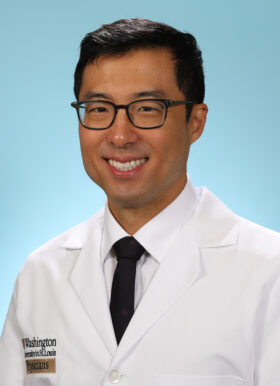Program Description
The Cornea, External Disease, and Refractive Fellowship at Washington University is an extremely well-rounded training ground for fellows to excel across diverse career paths. Our graduating fellows have established successful practices in academic universities, hospitals, and private practices.
We opened a new refractive surgery center in 2022-23 owned and operated by Washington University with very active involvement of the fellows, further increasing the large surgical volume that our trainees are engaged in as primary surgeons. The refractive surgery center is run by Dr. Stephen Wexler, one of the busiest refractive surgeons in the Midwest.
Our clinical and surgical facilities are all optimized for teaching and education and we have a state-of-the-art 14 station microsurgical lab with full video capabilities at every station. In addition, our local eye bank offers the newest techniques in tissue preparation for corneal surgery.
Under the instruction and mentorship of 6 active faculty members, we have one of the highest clinical and surgical volumes for any corneal fellowship program. As primary surgeon, fellows consistently perform 100-120+ adult and pediatric keratoplasties (PKP, DALK, DSEK and DMEK and DSO), 75 – 100 cataract surgeries, 5 – 10 ocular surface reconstructions (KLAL, SLET, AMT), up to 20 refractive laser procedures (LASIK, PRK), and a wide variety of superficial corneal and conjunctival procedures every year.
Fellows will have extensive experience in the management of a broad range of corneal and external disease pathology. Rigorous cornea conferences and journal clubs will reinforce critical thinking skills and scientific discussion. Opportunities and mentorship for active laboratory and clinical research are available. Fellows will have a junior faculty appointment at the university and VA Hospital and participate in resident education and surgical training.
Director
Length of Fellowship
1 year
Number of positions per year
2
Starting Date
Approx. July 7
Application deadline
August 30
Visit SFMatch.org to apply
Stipend
Yes- PGY5 scale
WUSTL- Stipend Scale
Actively involved in resident education
Yes
Research required
Yes- Clinical or Basic
Block time assigned to research
Flexible
Address (for supplemental Items)
Washington University
Ophthalmology Fellowship & Residency Coordinator
Attn: Amy Jones
660 S. Euclid Ave.
MSC 8096-0029-9400
St. Louis, MO 63110
Tel: (314) 362-5722
Email: jonesa@wustl.edu
To complete your application,
please email a photo and COMPLETE medical school transcript to the Fellowship Coordinator.
Fellows have the opportunity to work closely with our Cornea faculty including Chairman Todd Margolis, MD, PhD; Augustine Hong, MD; Jennifer Enright, MD, PhD; Praneetha Thulasi, MD; Stephen Wexler, MD and Jessica Yang Walia, MD.
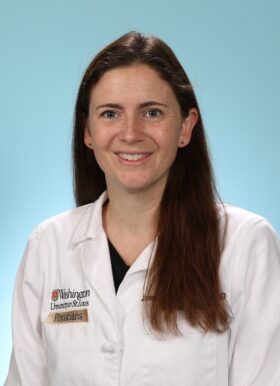
Jennifer Enright, MD, PhD
Assistant Professor, Ophthalmology and Visual Sciences
- Email: enrightj@wustl.edu
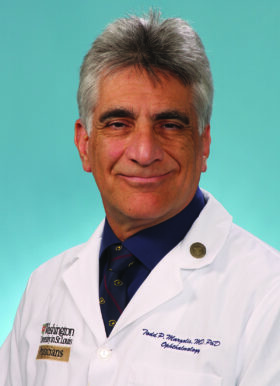
Todd Margolis, MD, PhD
Alan A. and Edith L. Wolff Distinguished Professor and Chairman, Ophthalmology and Visual Sciences
- Email: margolist@wustl.edu
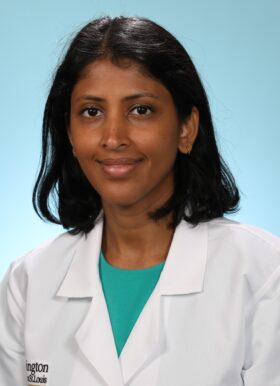
Praneetha Thulasi, MD
Assistant Professor, Ophthalmology and Visual Sciences
- Email: thulasi@wustl.edu
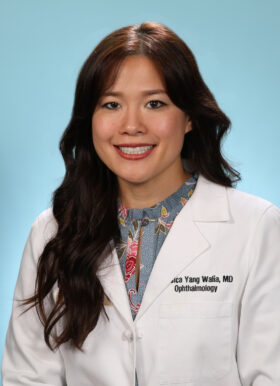
Jessica Yang Walia, MD
Assistant Professor, Ophthalmology and Visual Sciences
- Email: jessicawalia@wustl.edu
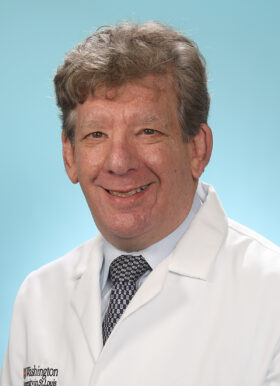
Stephen A. Wexler, MD
Professor of Ophthalmology and Visual Sciences
- Email: swexler@wustl.edu
Medical Director Washington University LASIK Surgery Center
More about the program
Call:
The Fellow will be responsible for several weekends of trauma call in the adult hospital throughout the year. Weekends are split between all other subspecialty fellows. The first and third year residents are responsible for ER and inpatient consults. The fellow, when on call, will attend surgical trauma cases. The fellow will be a resource for urgent cornea issues that the resident service cannot handle.
Research Time:
Research projects are available for the fellow’s participation. The fellow is encouraged to submit a minimum of 1 publication.
Vacation:
The fellow is given 3 weeks of vacation with dates provided to the program well in advance.
Scientific Meetings:
The fellow is encouraged to attend at least 1 meeting with a scientific presentation. The fellow is also encouraged to attend the annual Cornea Fellows Education Summit.
Career Planning:
Prior fellows from our Department are practicing around the world. They hold chair and faculty positions at academic departments, leadership roles in ophthalmology, run efficient private practices, and are involved in medical consulting.
Additional duties and resources:
Fellows will attend Grand Rounds on a weekly basis and will present at Grand Rounds at least once during the year. There are numerous educational lectures and research conferences that the fellow may attend if interested. Journal club occurs several times a year and is mandatory. The fellow has the opportunity to participate in a board review course, and mock oral board review held on campus in the spring.
